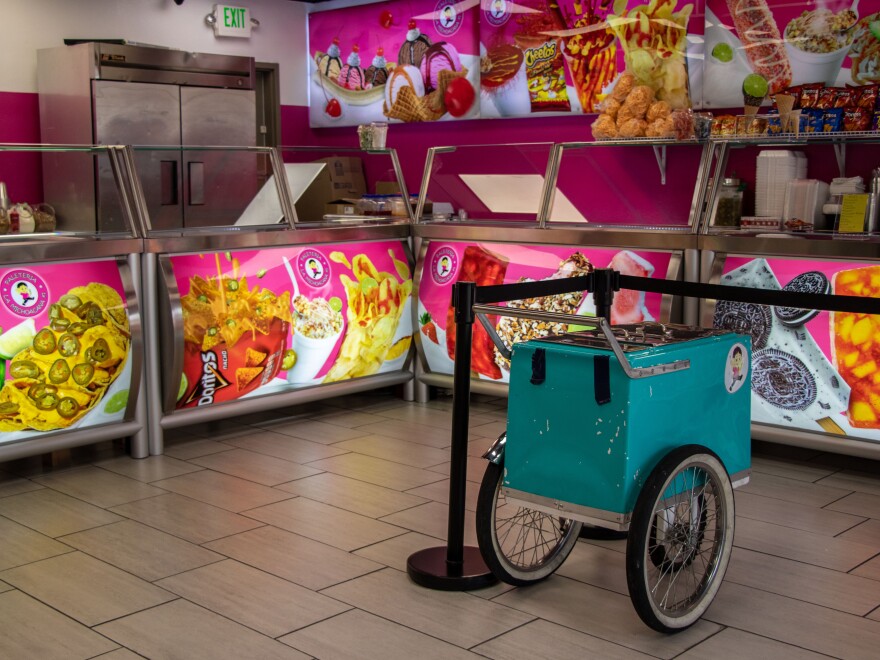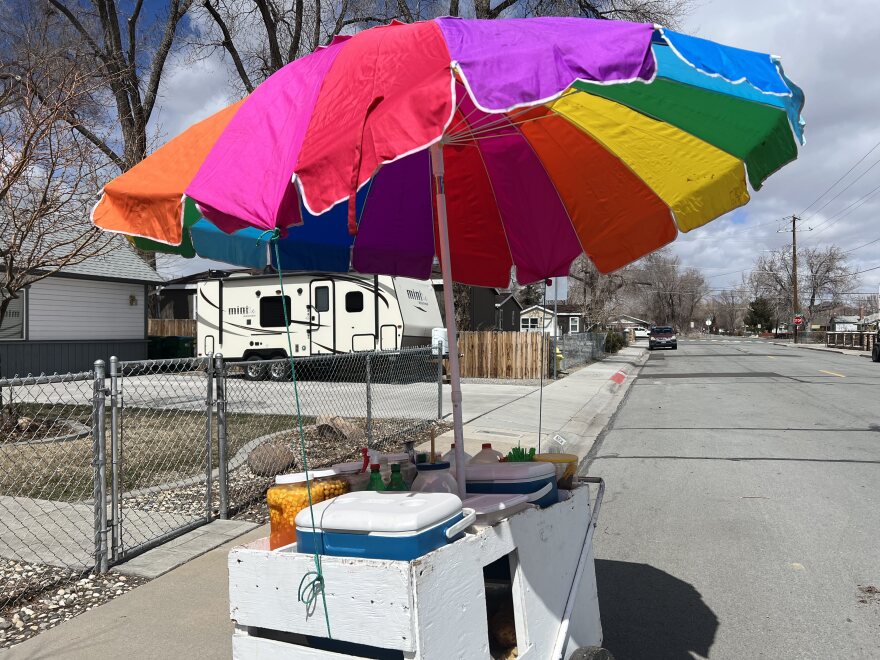On a quiet Wednesday afternoon in early April, a cashier at Paleteria La Michoacana, helped a customer who was buying a paleta or frozen fruit bar.
Owner Pascual Ventura said sales were slightly down during the winter months. But overall, he said, it’s been a good year in part because he also sells other snacks like “elotes."

Ventura opened La Michoacana in 2020 and currently has two locations in Reno and Sparks.
“It was very difficult when we first started, but we opened one store and we got good results. And then we opened another and right now we’re getting ready to open a store in Carson City,” Ventura said in Spanish.
But Ventura first had to jump through many hoops before he could operate a business.
In the middle of the shop, Ventura has a light blue small cart with two wheels. He said it reminds him of his days as a sidewalk vendor in California.

Ventura, who moved to the United States from Puebla, Mexico, 20 years ago, resorted to street vending as a way to make a living.
“It’s very hard work. I was assaulted at least two times and went to jail a couple of times just for being a street vendor,” he said in Spanish.
A bill in the Nevada State Legislature seeks to help street vendors. In January, state senator Fabian Doñate introduced Senate Bill 92, which would decriminalize street vendors.
“Part of our goal through this bill is to allow them the opportunity to apply for licensure and permitting with regard to the health district and also to create uniformity throughout the entire state,” Doñate said during a hearing to introduce the bill.
Street vendors can be found in pretty much every state - not just Nevada.
According to industry-market research database IBISWorld, there are more than 50,000 street vendor businesses in the U.S. as of 2022, an increase of 13% from the previous year.
Several states have taken the lead in regulating sidewalk vendors. In 2018, California passed the Safe Sidewalk Vending Act that decriminalizes street vending.
In 2021, the New York City Council created the Street Vendor Advisory Board, which provides recommendations for laws and regulations pertaining to sidewalk vendors.
Similarly, Arizona, Utah and Georgia have all passed the Mobile Food Vendor Freedom Act which regulates food trucks.
This year, the District of Columbia is likely to pass a bill that removes criminal penalties to sidewalk vendors.
Nevada’s bill would create the Task Force on Safe Sidewalk Vending and require local health boards to adopt certain regulations, such as establishing a certificate program and stratification system.
Regulations for street vendors in Nevada can be confusing, said Robert Purdy, an attorney advising the Nevada Hispanic Legislative Caucus.
“As every county and city has different regulations for vendors, it makes it very difficult for them to comply with food and licensing regulations, therefore, to help legitimize street vendors we first need to recognize that safe sidewalk vending is an economic issue,” Purdy said.

The bill has received mixed opinions from local jurisdictions and community members, with food and public safety the main concerns.
Although Ventura has his own business now, he understands what street vendors go through and he feels they should be given the chance to make a living.
“If the street vendors can be given a permit, then they should get one; because we’ve been through this. And now that we have our businesses, we see how these vendors still work under the same conditions and it reminds us how we started years ago,” Ventura said in Spanish.




